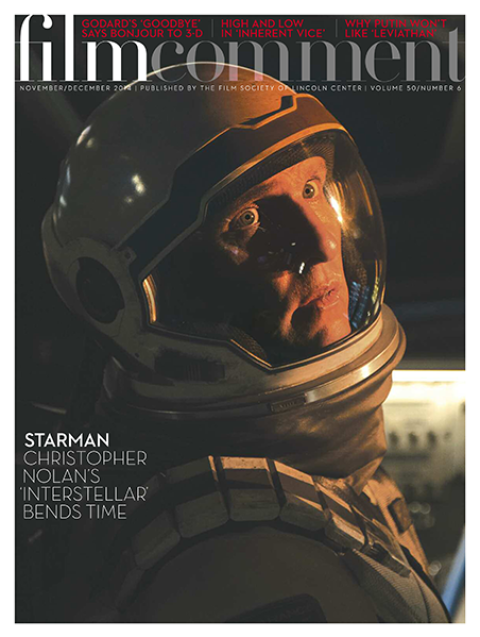
There’s a moment in Still Alice when Julianne Moore, looking at herself in the mirror, slathers her face with cream. Piles it on, not to cleanse or beautify, but to erase. To us it still looks beautiful, but to this woman who’s a professor and celebrated linguist, losing words and hence her identity to Alzheimer’s, it’s the face of a stranger, or perhaps a face she’s no longer able to sustain. For how do we know exactly?
It’s the intent of this moving film to capture something that for obvious reasons is rarely attempted in memoir or movie, i.e., the experience of the deadly disease from the perspective of the sufferer rather than the caregivers. The eponymous title from the book by Lisa Genova that has been adapted by writer-directors Richard Glatzer and Wash Westmoreland underlines the idea that Alice remains Alice to the end. Wanting to preserve their character’s dignity, they de-dramatize the horror, spare us the messiest and most alienating symptoms of Alzheimer’s, allowing this high-achieving woman to negotiate her own descent as far as she can.
What Alice has is early-onset Alzheimer’s, a form of the disease that is far rarer and more cataclysmic—often afflicting victims in their prime (Alice is 50)—but, ironically and for cinematic purposes, less ugly. Watching her lose a word in an early lecture before an audience of her peers, then become completely disoriented during a routine run in the park, is to stumble with her in a journey toward disintegration that is terrifyingly real.
A professor at Columbia, Alice is as passionately alert to her three grown children as to her vocation. Her scruffy-splendid faculty home in Morningside Heights is a beehive of comings and goings: she has a son (Hunter Parrish) and two grown daughters, one (Kate Bosworth) married and trying to conceive, and the other (Kristen Stewart) a struggling actress living on the West Coast and with whom Alice is having a battle of wills. Alec Baldwin plays her peripatetic scientist husband and the casting says it all: this is not the stand-by-your-demented-wife type.

For the past three decades Moore has been the high-wire artist of her generation, blithely unconcerned with safety, with protecting herself as an actress. Yet strangely, after all her roles as women in various forms of meltdown, of loneliness and despair, Alice is in some ways her most grounded character. She is more in possession of herself, there’s a density of being that forever escapes her more marginal characters.
Alice is mastering the art of losing—never have the poet’s words been more apt—but mastery here is as important as losing. An expert in different forms of nakedness, both physical and emotional, Moore must here play a woman exposed in a completely different way, inviting us to feel confusion, hope, love with her, get inside her head. It is the thing we most long to do when confronted with someone close to us whose mind and thoughts we can no longer intuit.
Alzheimer’s has emerged like cancer before it from a shameful secret to a subject of pressing, gruesome facts. Still, even more than most diseases, it’s a difficult subject for drama. Movies inhabit a world with moral coordinates, but the world of Alzheimer’s is not moral. It’s not a testing ground for character. You don’t win points for “handling it well,” there is no promise of redemption. These are words with which we console ourselves, as is the myth that Alice is still Alice.
In an interview, Moore once explained why she adored working with Robert Altman: “He loves people who are flawed, and he never resolves anything. There’s no expectation of heroism.” Moore has created a mesmerizing portrait of a woman possessed by a disease but also still possessed of a self. Perhaps we can leave the question—neurological, existential—of whether Alice is still Alice unresolved.








